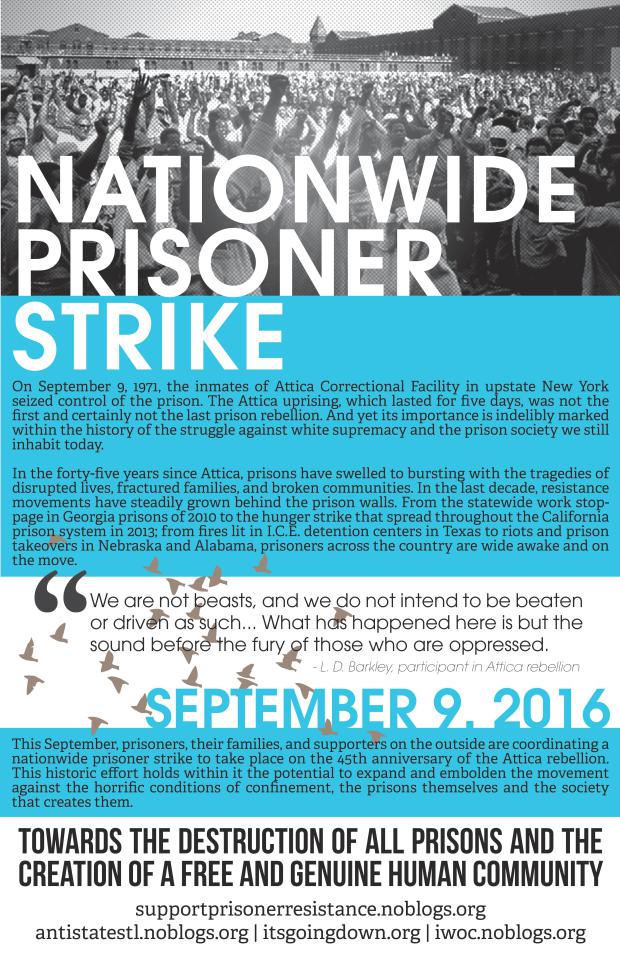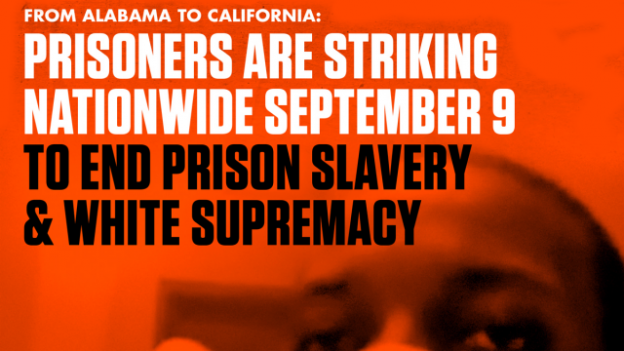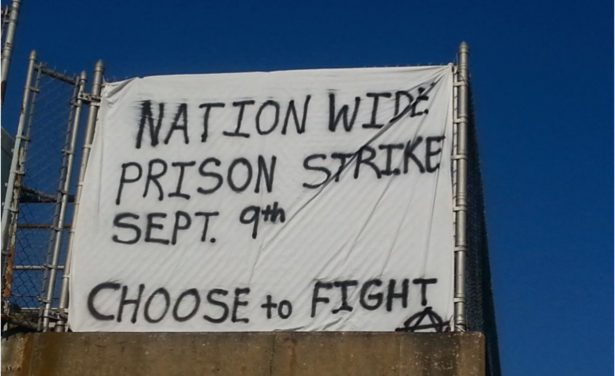An update, and interviews with some inmates, on tomorrow’s prison protest events.
Tomorrow, September 9, inmates in prisons from California to Alabama will rise in protest and civil disobedience against the inhumane conditions, underpaid labor, and socioeconomic oppression of the American prison system. Activists in states from Washington to New York, Michigan to Texas, will gather in solidarity with those prisoners. As I wrote in an article published yesterday at Occupy.com, this is a strike against American corporate capitalism itself, because the prison is the “ideological muscularity” of economic injustice. Punitive incarceration (as opposed to the detention of unstable and dangerous individuals) is a policy farce, which even intelligent conservative legal theorists are hesitant to defend. But what happens in American prisons is even worse–American policymakers have accepted the inevitability of micro-violence, an entire paradigm of inmates’ loss of agency over their bodies, behind prison walls. Even most of the international human rights community reluctantly accepts the inevitability of compulsory labor as part of imprisonment. But radical egalitarian thinking does not, and the politics of 2015-2016 have brought egalitarianism onto a bigger stage.
The events have been in planning and promotion stages for several weeks now, but apart from a fine article in The Nation that also ran yesterday, national media coverage has been lacking. The protest at Standing Rock — a stand by Native Americans and allies against the economic interests that run over indigenous land — have also overshadowed other activist news, and it’s worth noting that the protests there are connected with prison resistance at the deepest levels. The extraction-exploitation economy uses the cheapest human labor it can find, and fights to dig energy out from all land, no matter how sacred to those connected to that land. Dig stuff up, throw people in prison, keep planet and people in a state of dependence and desperation. Continue reading




